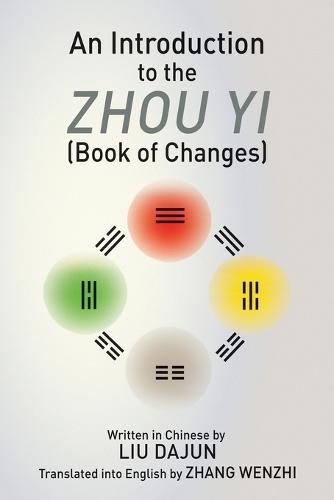Readings Newsletter
Become a Readings Member to make your shopping experience even easier.
Sign in or sign up for free!
You’re not far away from qualifying for FREE standard shipping within Australia
You’ve qualified for FREE standard shipping within Australia
The cart is loading…






This title is printed to order. This book may have been self-published. If so, we cannot guarantee the quality of the content. In the main most books will have gone through the editing process however some may not. We therefore suggest that you be aware of this before ordering this book. If in doubt check either the author or publisher’s details as we are unable to accept any returns unless they are faulty. Please contact us if you have any questions.
The I Ching (a. k. a. Yi jing, the Book of Changes, Zhou Changes) is one of the oldest texts in world history, and it is often considered the first in the Confucian classics. To this date, it continues to be an important source of understanding traditional Chinese thought and society. To help readers fully appreciate this archaic classical work, the author of this book comprehensively considers the explanations of the characters of zhou and yi from all traditional perspectives, and then introduces the relationship between Confucius (551-479 BCE) and the later Yi zhuan (Commentaries on the Changes), which elevated the Zhou yi from a divination manual to a classic of wisdom literature. The connections between the sixty-four hexagrams introduced in the book can help define the import of the different hexagrams. As the foundation of the Zhou yi, the traditional study of images and numbers plays a major role in the book. The Zhou yi originally was a divination manual, and this book also offers the author’s special perspectives on this topic. The first part of this book also sketches a scholarly outline of the history of Changes scholarship and further explores image-numerological approaches to the Zhou yi employed by Zhou yi experts of past dynasties.
The second part of this book is made up of some of the author’s prefaces and speeches, which exhibit his views on the relationship between the Yi jing and Chinese oracular culture, on the influence of the Zhou Changes upon Confucianism and contemporary life, and on the latest archeological discoveries concerning Changes scholarship.
The Chinese version of this book was published in 1985, which immediately aroused attention from both researchers and amateurs, and continues to be a best seller even now. To date, its Chinese version has become essential reading for both researchers and amateurs and has been reprinted over ten times; its circulation has amounted to over 100,000 copies sold in China.
$9.00 standard shipping within Australia
FREE standard shipping within Australia for orders over $100.00
Express & International shipping calculated at checkout
This title is printed to order. This book may have been self-published. If so, we cannot guarantee the quality of the content. In the main most books will have gone through the editing process however some may not. We therefore suggest that you be aware of this before ordering this book. If in doubt check either the author or publisher’s details as we are unable to accept any returns unless they are faulty. Please contact us if you have any questions.
The I Ching (a. k. a. Yi jing, the Book of Changes, Zhou Changes) is one of the oldest texts in world history, and it is often considered the first in the Confucian classics. To this date, it continues to be an important source of understanding traditional Chinese thought and society. To help readers fully appreciate this archaic classical work, the author of this book comprehensively considers the explanations of the characters of zhou and yi from all traditional perspectives, and then introduces the relationship between Confucius (551-479 BCE) and the later Yi zhuan (Commentaries on the Changes), which elevated the Zhou yi from a divination manual to a classic of wisdom literature. The connections between the sixty-four hexagrams introduced in the book can help define the import of the different hexagrams. As the foundation of the Zhou yi, the traditional study of images and numbers plays a major role in the book. The Zhou yi originally was a divination manual, and this book also offers the author’s special perspectives on this topic. The first part of this book also sketches a scholarly outline of the history of Changes scholarship and further explores image-numerological approaches to the Zhou yi employed by Zhou yi experts of past dynasties.
The second part of this book is made up of some of the author’s prefaces and speeches, which exhibit his views on the relationship between the Yi jing and Chinese oracular culture, on the influence of the Zhou Changes upon Confucianism and contemporary life, and on the latest archeological discoveries concerning Changes scholarship.
The Chinese version of this book was published in 1985, which immediately aroused attention from both researchers and amateurs, and continues to be a best seller even now. To date, its Chinese version has become essential reading for both researchers and amateurs and has been reprinted over ten times; its circulation has amounted to over 100,000 copies sold in China.